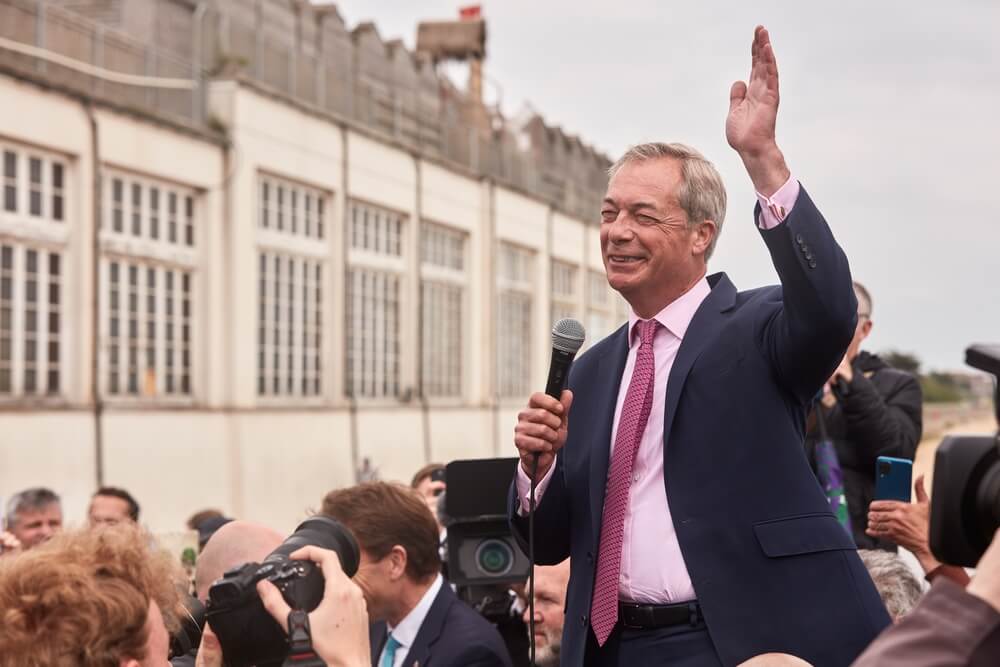President Donald Trump’s unprecedented second state visit to the UK this week may offer a brief diversion from the problems enveloping Sir Keir Starmer’s premiership.
It has been a challenging month so far for the prime minister since the resignation of his deputy, Angela Rayner, for underpaying her property taxes prompted a major ministerial reshuffle.
To lose one senior figure might have been regarded as a misfortune for Starmer. To lose a second, in the person of Peter Mandelson, Britain’s ambassador to the US, looked like carelessness.
The former Labour fixer’s sacking over his past relationship with the convicted American paedophile Jeffrey Epstein raised questions over how much Starmer knew before appointing him to Washington.
The twin scandals added to the growing nervousness within the ruling Labour Party over where it is headed after a challenging first year in power and in the face of the growing popularity of right-wing Reform.
Amid reported rumblings among MPs about a potential leadership challenge, Starmer is under growing pressure to reverse the party’s fortunes at least by the time of local elections next May.
The ruling party’s travails have been playing out against an increasingly feverish debate over immigration and national identity, as flag-waving demonstrators descended on London at the weekend for a ‘Unite the Kingdom’ rally.
A powerful vote of confidence—or a test of the special relationship?
Enter stage right: Donald Trump. Starmer’s team will be crossing its fingers that the US president’s 48-hour visit as a guest of King Charles proceeds without a hitch and might even generate some positive headlines for the government.
An announcement by Google that it planned £5 billion of new investments in Britain was the first of a number of high-tech deals expected to be announced in the week of Trump’s visit. UK Chancellor Rachel Reeves described the Google plan as “a powerful vote of confidence in the UK economy and the strength of our partnership with the US”.
The irony of the current partnership is that the British public at large have little faith in the so-called ‘special relationship’ with the US and even less in Trump. The president’s low standing in UK favourability polls extends to current supporters of Reform, despite its ideological parallels with Trump’s MAGA movement.
That plan might falter if Trump is challenged about his own relationship with Jeffrey Epstein, potentially at a press conference scheduled for the end of his visit
Starmer’s strategy of cultivating a warm relationship with Trump, in which the state visit plays an obvious role, makes political sense, even if it can occasionally prompt some of his domestic audience to cringe.
The same fulsomely friendly tactics will be put to prominent use this week during a programme that aims to keep Trump as distant as possible from manifestations of political controversy or public discontent.
That plan might falter if Trump is challenged about his own relationship with Jeffrey Epstein, potentially at a press conference scheduled for the end of his visit.
Even if all goes smoothly, the downside of all the transatlantic bonhomie for Starmer is that it constrains him from warning the electorate that, if it moves towards Reform and its leader Nigel Farage, it could end up being ruled by a version of Trump-lite.
“Violence is coming to you”
Despite the apparently cosy relationship between Starmer and Trump, elements of the MAGA camp have expressed open hostility to UK policies on immigration and also on free speech, at least in cases where British legislation risks limiting the profits of US tech giants.
No one has gone quite as far as Trump’s (former) buddy and bureaucracy cost-cutter Elon Musk, who appeared by video at the weekend London rally organised by far-right provocateur Tommy Robinson.
Starmer’s Downing Street office condemned Musk for using dangerous and inflammatory language
The Tesla boss warned British voters that “violence is coming to you. You either fight back or you die,” and called for the dissolution of parliament and a change of government.
That was too much even for Starmer’s emollient Downing Street office, which condemned Musk for using dangerous and inflammatory language. It must have helped that, after the tech boss took an early role in Trump 2.0, the two men subsequently fell out.
Trump welcome, Trumpism not
Assuming this week’s Trump visit avoids potential pitfalls, what are the next challenges for Starmer and Labour?
The party holds its annual conference at the end of this month, and the prime minister will have to persuade colleagues he is the best choice to move the government and the country forward, particularly on the economic front.
 Starmer has acknowledged that Farage’s Reform is now his party’s main challenger, with the once-dominant Conservatives in possibly terminal retreat
Starmer has acknowledged that Farage’s Reform is now his party’s main challenger, with the once-dominant Conservatives in possibly terminal retreat
Starmer has acknowledged that Farage’s Reform is now his party’s main challenger, with the once-dominant Conservatives in possibly terminal retreat.
However, he has alienated the Labour left by appearing to appease the perceived prejudices of the electorate, predominantly over immigration.
He could choose to appeal to a new ‘silent majority’ who do not rail against foreign invaders, or the deep state, or treacherous judges, or paint English flags on roundabouts.
He might assert that British democracy should be immune from those populists who seek to exploit genuine public grievances to tighten their own grip on the processes and profits of the state.
Perhaps he could sum up his conference speech by saying, “Trump is always welcome in Britain. Trumpism is not.”